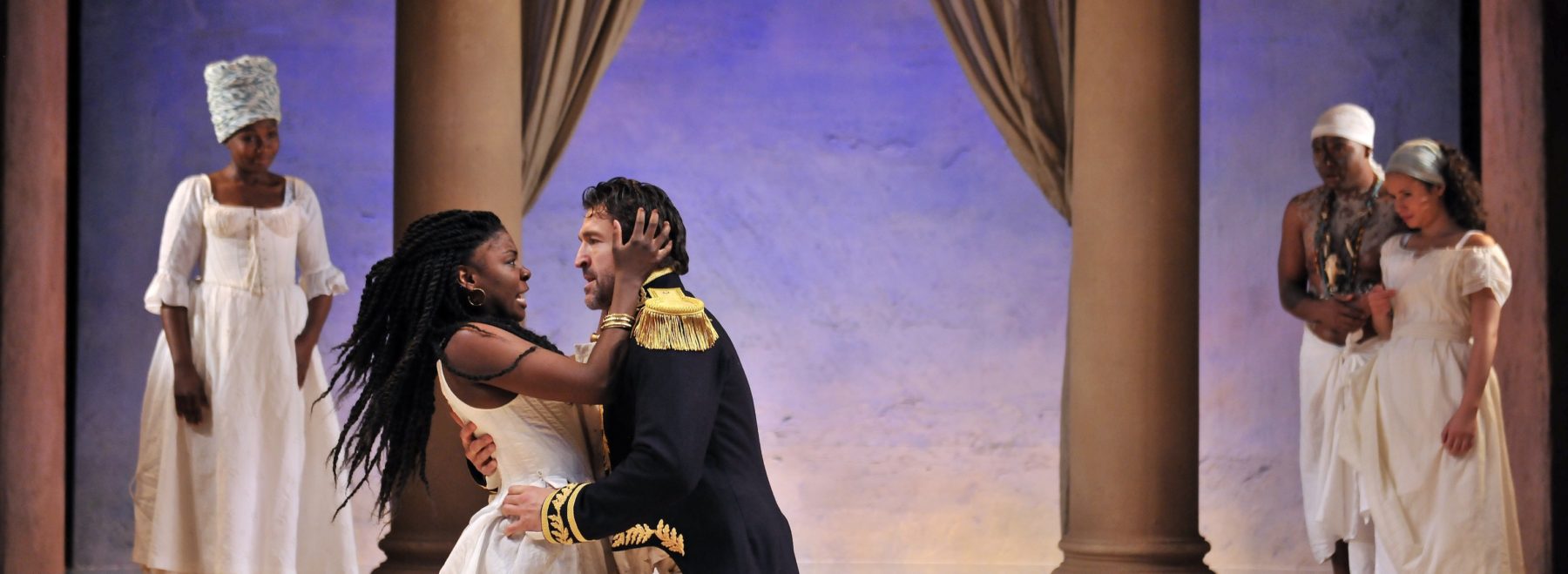Antony and Cleopatra: where is the love?
Carted off to the world of sun, sea and sex, Egypt is turned into a Caribbean land where lust and jealousy reign in the Royal Shakespeare Company’s new production of Antony and Cleopatra. The RSC have co-produced the play with The Public Theater company from New York and GableStage from Miami. The concept is an intriguing one: cross-continental companies, dealing with a play about culture clashes. But in reality this is a production which could have been staged anywhere, using Britain’s very own cosmopolitan multitude of actors and but instead lead the production into feeling less than polished.
Interestingly, director, Tarell Alvin McCraney has made substantial edits to the the Bard’s text, reordering scenes and transplanting the action to ‘the late 1700s against the backdrop of Saint-Domingue, on the eve of the Haitian Revolution against the French.’ Sometimes this works, but at other times it feels confusing, a little lost, and not entirely obvious. Chivas Micahel who plays the enigmatic Mardian sings beautifully in alarmingly clear falsetto as the cast frolic around in the underused pool in ritual delight and to facilitate certain emotions which sometimes fall short in this split company.
Individually, Jonathan Cake as Mark Antony and, American Joaquina Kalukango as Cleopatra perform their roles highly successfully. Cake’s Antony is bold and emotional, but complacent, while Kalukango is feisty and full of jealous desire; however, the chemistry falls short when they are together, only tugging at the emotional heart strings towards the end of the play, when cultures tear them apart and death separates them forever. Throughout, Kalukango plays Cleopatra as angry, particularly as she receives news that Antony has married again rather than giving himself entirely to her, for better or for worse. Her anger is justified, but I found myself wanting more emotional turmoil which lacked significantly. These were two characters that I just did not care about. For instance, in Cleopatra’s seemingly amateur death scene I found myself feeling indifferent; lacking emotion where I felt it should have been.
The most successful parts of the play came in when the triumvirate (the three rulers of Rome) were together. Their drunken scenes generated much laughter and their amusing dancing to the live band seemed justified in their delight at their momentary political alliance, unifying themselves as a single force. The RSC’s thrust stages lend themselves to accomplished comedy, with the audience close to the action, and so the drunken stumbling around provides much entertainment. Among this merriment, Samuel Collings’ stern and manipulative Octavius Caesar translated well on to stage as he embodied his character fully. However, my lack of affiliation with the rest of the characters led me to comply and side with Collings’ character in his endeavour to break the triumvirate’s truce and dominate his power over Rome.
Tom Piper’s stage design is excellent, with billowing material to look like a canopy and then sails, and pools of water, but could certainly have been put to better use through some clever direction and more ambitious staging. This is a production which was enjoyable to watch, but lacked any kind of heart. There were moments when the company came together successfully but there were many scenes which relied too much on the music by Michael Turber to generate any type empathetic connection.

Comments